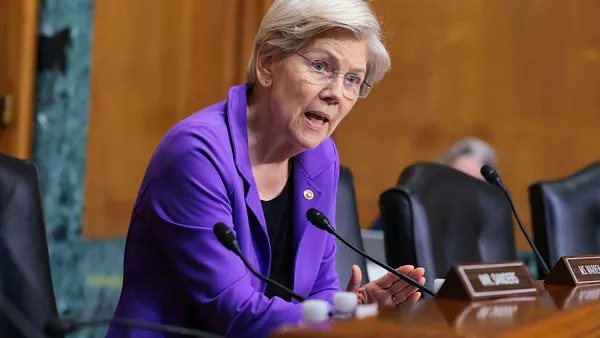State Street Global Advisors (SSGA) expects all of the companies in which it invests to have at least one woman on its board of directors, it said Wednesday in a letter to clients.
The environmental, social and governance requests of the Boston-based bank’s $3.9 trillion investment arm have become somewhat of an annual event in recent years, with a familiar pattern: The first year heralds a warning. The second year is the business end.
SSGA’s campaign to expand women’s presence on corporate boards dates to 2017. Since then, 862 of the 1,486 companies it identified with previously all-male boards have added one or more women directors, Cyrus Taraporevala, SSGA’s CEO, wrote Wednesday in the letter.
“While boards have become more gender-diverse, it is clear that this work isn’t yet complete,” Taraporevala wrote.
Companies that don’t meet that standard can expect SSGA to vote against the board leader or chair of the board’s nominating committee, Taraporevala said. In previous proxy seasons, SSGA’s gender request applied to companies listed on major indexes in select countries, he said.
The business end may yet come next year. Starting in 2023, SSGA is asking companies listed on major indexes in the U.S., Canada, Britain, Europe and Australia to have a 30% proportion of women on their boards.
“We expect this change to result in boards with 3 or 4 female directors on average and as many as 3,000-to-4,000 additional female directors across covered indices,” Taraporevala wrote.
SSGA is hardly unique in its push to diversify corporate boards. The Nasdaq exchange, in December 2020, proposed requiring companies to have at least two diverse directors, including one who self-identifies as female and one who self-identifies as either an underrepresented minority or lesbian, gay, bisexual or transgender. Goldman Sachs, in January of that year, said it would no longer take a company public in the U.S. or Europe if its board is composed of all straight, white men.
Last year, SSGA asked companies to divulge the racial breakdown of their boards, but not necessarily to make changes. The business end, it said, would come in 2022, when the asset manager would begin voting against responsible board members of S&P 500 and FTSE 100-listed companies that don't have at least one person of color on the board.
SSGA reiterated that pledge in Wednesday’s letter, adding it would take voting action, too, if those companies don’t disclose their equal employment opportunity reports.
The move builds on a policy SSGA laid out in 2020, in which it said it would vote against board members at big U.S., U.K., French, German, Japanese and Australian companies that lag on ESG standards if they "cannot articulate how they plan to improve" their scores on a homegrown metric the bank calls the "responsibility factor."
State Street’s "R-factor" is based on an ESG disclosure framework established in 2018 by a San Francisco nonprofit, the Sustainability Accounting Standards Board. "We believe a company’s ESG score will soon effectively be as important as its credit rating," Taraporevala wrote in 2020.
SSGA’s 2022 proxy season requests encompass a climate focus, in addition to diversity.
The investment arm said it would vote this year against board directors that represent companies on major indexes in the U.S., Canada, Britain, Europe and Australia who aren’t aligning themselves with disclosures asked for by the Task Force for Climate-related Financial Disclosures.
That includes whether the company discloses board oversight of climate-related risks and opportunities, direct and indirect greenhouse-gas emissions, and targets for reducing them. About one-third of companies in the S&P 500 fall short of that standard, SSGA said, citing Institutional Shareholder Services data.















